Leading in Unsettling Times
Top Trending Posts

Leading people has become more complex as the range of concerns leaders are being asked to attend to increases. We see capability and capacity constraints within the workforce place limits on what’s possible. We increasingly find our highest-performing leaders at risk of burnout as they strive to cover the gaps.
Who are we to make this statement?
We work alongside hundreds of leaders each year as confidantes, coaches, mentors, and changemakers. This month alone, we’ve heard multiple leaders declare: “Enough!”, “I quit!”, “This is too much!” This week, when we asked one leader how the Project was going, he responded: “The Project is easy, life is what’s hard, and these days, in my job, I have to cover ‘life’ too.”
Our assessment is that the ‘unsettling times’ we live in provoke us all and that leaders have, for some years, been absorbing more and more of the expectations spilling over from what’s happening at a societal level.
- Leaders are adjusting to hybrid working conditions and needing to find new ways of engaging teams to produce outcomes collaboratively and in a flexible format.
- Leaders are building new skills to engage staff members around trickier matters of health and wellbeing that affect morale, performance and productivity.
- Leaders are coping with company downsizing where it has taken place and absorbing additional responsibilities for those staff ‘let go’.
- Leaders are navigating the complexity of their own lives as they attempt to balance the pressure of who they ‘be’ for their loved ones and those they lead.
- Leaders are charged with building skills and capabilities within a workforce that requires upskilling concurrent with delivering outcomes.
… The list goes on.
This article is devoted to those leaders. If you’ve identified with something we shared, we’d like to offer a few ways through.
Personal Wellbeing Moves
Our first assessment is this: Times will get more unsettling. We don’t anticipate that things will settle down at a societal level – perhaps the opposite. So, if you’re leading the way, you’ll need to be in good mental and physical condition. Your Personal Wellbeing is our starting point. Get some Wellbeing disciplines in place that require you to carve out specific time, ideally each day, to be clear, think clearly and make good decisions.
1. Move. At the start of the day, consider an early wake-up and exercise – even just 20 or 30 minutes to get moving – making yourself your first daily investment.
2. Prioritise hard. Assuming there’s no immediate change to what you’re charged to take on, your capacity to determine priorities and communicate these to stakeholders will help set your focus and the team’s agenda.
3. Meditate. For the high performer, slowing down for just 10 minutes a day is a great way to create a clearing, tune inwards, and assess ‘how am I doing today’. As workplace demands increase, this is an important question to ask.
4. Reflect and Reframe. STOP regularly and check in on your direction. There’s no merit in ‘industrious hysteria’ – an addiction to mindless doing, with little connectivity to why and the best way. Busy does not equal effective. Take time to reflect on direction, learn lessons and integrate and reframe those lessons for the next sprint.
5. Read. Introduce reading material that helps you shift from your current context to one that helps you ‘see things differently’ – perhaps an inspiring book. It does not matter if you only make it through a few pages per evening; the capacity to step beyond your mental agenda will help you navigate challenges and entertain new possibilities.
6. Kick the habit. You probably have a habit that undermines your focus and capacity to cope. Maybe week-night drinking? Mindless scrolling? TV ‘til late? Consider ways to unwind from the unhelpful habit and replace it with something that genuinely restores your sense of physical and mental wellbeing.
7. A Personal Board. Consider raising a Personal Board of Directors. These are key people, friends and confidantes you can turn to for advice and support. They are not often within your organisation but arise for you as people you can trust to be there when it matters to guide, support and encourage without a personal agenda.
Collective Communication Practices
Our second assessment is this: Effective communication will be the enabling force of the future. We live in a world that’s crowded with messaging. Powerful forces are vying for the attention of your workforce. Worse still, the platforms you establish for communication within your organisation can be a force that undermines mindfulness. Your people are so busy doing that they are in danger of no longer thinking. We are pretty sure you’re paying them to think. So you need to set the conditions for them to do so. Get some communication disciplines in place that have your workforce focused and ready to engage in the work you’re paying them to do.
1. Speak straight. Particularly if you are the #1 leader, find the courage to share what needs to be said. You can be direct and kind. Your people will appreciate your straight talk, especially if times are tough. Your clarity will help them navigate uncertainty and make decisions for their future.
2. Listen for concerns. It’s tempting that when things get busy, leaders stop making time to listen for fear of more ‘in the pipeline’. Try the opposite. Make time to listen deeply and encourage the discipline of regular check-ins between your People Managers and Team Members. Keeping your finger on the pulse will help you make decisions in these unsettling times.
3. Get your rhythms right. Communication and meeting rhythms, that is. Concerns for your people arise in the absence of important information, so communicate often and well. Wrap a communications process around your meeting rhythms and set your People Managers up to engage in the right conversations in the right forums at the right time. Your people will appreciate it.
4. Clarify Standards of Performance. It amazes us how many organisations are STILL unclear about Roles and Responsibilities. If that’s you, sort it out. Start by identifying the Standards and Conditions of Performance you expect your people to meet. Be specific. Communicate these. Encourage a culture of accountability; if you have a capability gap, solve it. Your capacity to navigate unsettling times will require you to find ways to be more productive, and this kind of clarity helps.
5. Build skills to mobilise. In our world, getting work done is all about the quality of your network of communication and conversations. Can your people make effective requests and offers? Can they secure reliable commitments? Are they effective negotiators? Are they confident in offering and receiving feedback? Can they deliver on their commitments and hold others to account? If not, consider upskilling and watch your world start to transform.
6. Celebrate what’s working. If you’re too busy ‘caught in the weeds’, chances are you’ll be too busy to affirm and acknowledge what’s working well within your organisation. Taking time to declare what’s going well and celebrate the wins is a great way to overcome a sense of ‘unsettled’ within the workforce and, at the shared level, build a culture that values achievement.
7. Lean on EAP. Employee Assistance Programs can be a super helpful way to support you and your People Managers in navigating some of the tricky situations that arise within the workforce and around which they feel unequipped to deal with. Ensure your People Managers know when and how to refer and give them the confidence to engage early.
In an era where information is at our fingertips, AI and digitisation are available to make our work ‘easier’, it seems odd that we’re busier than ever, more disconnected than ever, and more at risk than ever of succumbing to mental health concerns. All of this is ‘unsettling’.
Leaders, we encourage you to be the change you wish to see in the world. Start with yourselves and your own wellbeing and extend your impact by focusing on communication to make the most of these curious times.
Let us know how you go!
Share This
Top Trending Posts
Sign Up
to our blogs and receive regular updates.

Stay in the Conversation
with Liberated Leaders...






